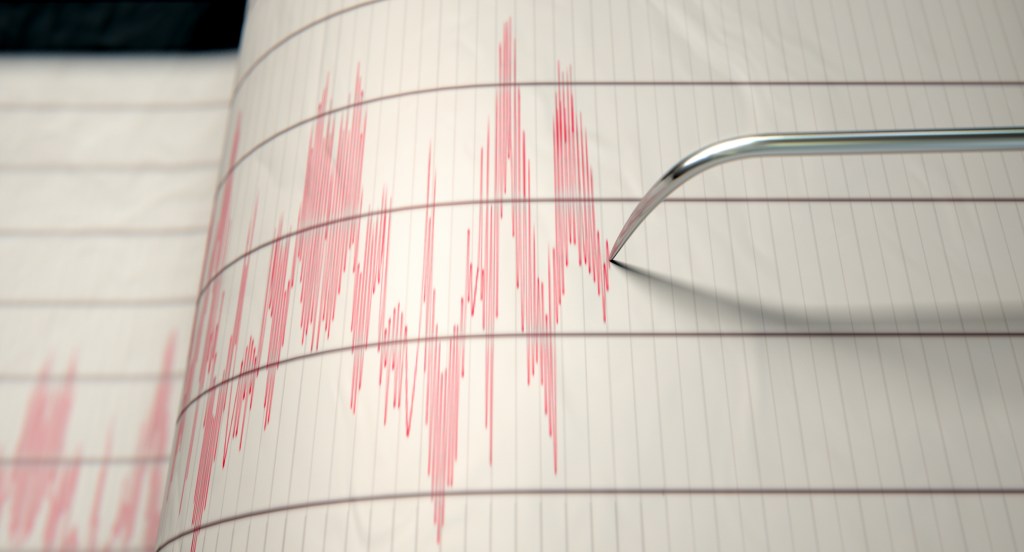Earthquake insurance isn’t something many homeowners consider. After all, it’s not a policy that’s required in most states, and many people are willing to take what they believe to be a very slight risk and go without any additional coverage.
However, as many as 50,000 earthquakes occur every year. While only an average of 16 major events make the news, earthquakes of any magnitude can cause damage. Advances in seismic instruments allow for better research and data collection. However, United States Geological Survey (USGS) scientists insist that there is still no way to predict an impending earthquake accurately.
Homeowners and renters insurance policies don’t typically cover damage caused by earthquakes, particularly in high-risk areas. You may need a separate earthquake insurance policy, which can cover damage to your dwelling, personal property, and any loss of use.
Earthquakes Are More Widespread Than You Might Think
Many United States homeowners consider earthquakes a localized hazard, mainly affecting the West Coast. The truth is earthquakes have occurred in 42 states, and earthquakes can occur anywhere, with at least some risk to all 50 states, five US territories, and the District of Columbia. While states like California, Missouri, and Washington are the most at risk, data from FEMA indicates that large sections of the country’s western and eastern parts have the potential for seismic activity.
It’s also important to understand what causes an earthquake. An earthquake can be caused by movement along fault lines, a factor that puts 148 million Americans at risk. However, mining and some techniques and byproducts of hydraulic fracturing have also been found responsible for earthquakes in states like Oklahoma.
An earthquake’s ability to cause damage isn’t always connected to its magnitude. Factors such as a property’s distance from the epicenter of an earthquake, the type of building construction, and the composition of the soil a dwelling is built on can affect how damage occurs and how severe it might be.
It’s Best to be Prepared, No Matter Where You Live
Because the risk of an earthquake exists everywhere, and your travels may one day bring you into an area of particularly high risk, it’s important to know how to stay safe in the event one occurs. Resources like ready.gov can provide specific instructions for what you can do to stay safe no matter where you’re located.
Remember to drop, cover, and hold on if you’re caught in an earthquake. Get low, get on your hands and knees if you can, and hold on to something sturdy. Cover your head and neck with your arms. If you can find a solid table or desk nearby, crawl underneath it. If this is not possible, try to huddle close to an interior wall away from windows and remain crouched. Hold on to something anchored or sturdy with one hand and cover your head with your other arm.
Events like Great ShakeOut Earthquake Drills can connect you to resources in your area where you can learn more about how to protect yourself and your family. Remember to create an emergency plan and practice with your family, so everyone knows what to do in an earthquake.
You’ll Need Extra Protection in the Event of an Earthquake
In the event of an earthquake, a standard homeowners or renters policy often won’t cover the cost of damage to your home, loss of personal property, or the expense of temporary living arrangements. Instead, you’ll usually have to purchase coverage as an add-on to your existing policy or as standalone earthquake insurance through a company specializing in this type of risk.
Earthquake insurance will cover damage to your home and any extended structures, like a detached garage, fence, or pool. You can also be reimbursed for the replacement cost of any damaged or lost personal property. Many plans will also cover additional expenses you incur while repairs are made, such as hotel, parking, and even the cost of takeout.
While banks require homeowners with mortgages to purchase flood insurance if they live in a high-risk area, the same is not true for earthquake insurance. Even though earthquake insurance isn’t mandatory in any state, the expense of repairing or replacing a home damaged by such an event far outweighs the cost of any policy. More than 40 states have seen an earthquake. Of those states, 16 have experienced an earthquake that registered about a six on the Richter scale.
The cost of insurance will vary depending upon your assessed risk, but you should note that if an earthquake occurs in your area, many companies won’t sell new policies for several months after the event. Suppose you live in an area near a fault line or close to mining and other practices that increase the risk of seismic activity. In that case, earthquake insurance is an especially important consideration. Be sure to talk to your Westwood agent to find the right policy.
Please Note: This article is for general informational and educational purposes only. It does not represent any specific insurance policy and does not modify any provisions, limitations, or exclusions of any current policy.





